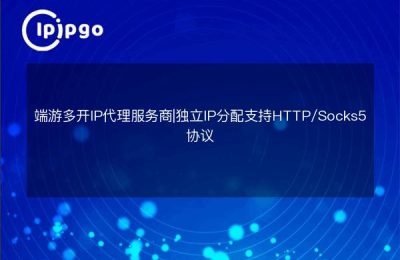
Why do you need a US Native Residential IP Proxy?
In daily network operations, many scenarios require the use of theReal home network environmentof the IP address. For example, some platforms judge user attributes by IP type, and data center IPs are easily identified as server room servers. At this point, the router IP from an ordinary home broadband can reflect the real user behavior characteristics.
The U.S., as a global Internet hub, has two core advantages for its residential IP:Wide geographic coverage(East/West Coast time zone flexibility) andHighly recognized by the industry(Strong adaptability for multi-domain business). Especially when doing localized business verification and account management, the native residential IP can simulate the real user's Internet track to the greatest extent.
How to recognize real and fake residential IPs?
There are cases on the market where residential agents are disguised with server room IPs, teaching you three identification techniques:
1. Check the ASN to which the IP belongs: The Autonomous System Number (ASN) corresponding to the residential IP should belong to the telecom carrier (e.g., Comcast, AT&T), not to the cloud computing provider
2. Detecting IP activity: The real residential IP will be dynamically changed as the user reboots the router, and the one that remains unchanged for a long time may be a static proxy.
3. Verify IP type: Check the IP registration type through a professional testing website, labeled as "Residential" is the real residence.
In the case of ipipgo's proxy service, for example, all of its U.S. nodes are served through theTriple validation mechanism: Real-time scanning of IP belonging to carriers, dynamic updating of IP pools, and automatic rejection of abnormal nodes. Users can use its self-developedIP Authenticity Detection ToolVerify agent quality at all times.
Core usage scenarios for residential IP proxies
According to ipipgo user data, U.S. residential IP is primarily used in these areas:
| Scene Type | specification | prescription |
|---|---|---|
| E-commerce Operation | Multi-account management is not associated | Dynamic residential IP rotation |
| data acquisition | circumvent anti-climbing mechanisms | High anonymity proxy + request frequency control |
| service testing | Simulate users in different regions | Static IP Binding to Specified Cities |
QA Frequently Asked Questions
Q: How should I choose between dynamic and static IPs?
A: Dynamic IP is suitable for frequent switching scenarios (such as batch registration), while static IP is suitable for long-term fixed business (such as overseas customer service system). ipipgo supports two modes of free switching, it is recommended to use dynamic IP to test the compatibility of business first.
Q: How do you ensure the anonymity of your agents?
A: In addition to using a residential IP, it is recommended to turn on theHTTPS full-link encryptionThe ipipgo proxy client has built-in privacy settings that automatically block 47 protocols that may reveal your real IP.
Q: What should I do if my IP is blocked?
A: The probability of residential IP being blocked is low, if it happens, you can immediately switch to a new IP. we suggest setting it in the ipipgo background.auto-rotation thresholdThe system will assign a new IP to continue the task within 3 seconds when an access restriction is encountered.
Key indicators for service provider selection
There are four dimensions that need to be met by a quality U.S. residential agent:
- Resource authenticity: Must have access to local telecom operator, not used for resale
- Network Stability: Packet loss rate below 0.3%, response speed <200ms
- Protocol compatibility: Support full protocol access such as SOCKS5/HTTPs
- Service controllability: Can be pinpointed to city/state/operator
Through real-world comparisons, ipipgo can be done in popular areas such as Los Angeles and New York CityMillisecond responseThe company is also a leader in the field of technology, with its originalIntelligent Routing AlgorithmIt can automatically select the optimal network path. Its residential IP library covers all U.S. zip code areas, which is especially suitable for business scenarios that require precise geolocation.








